

By: Arad Tadayon
Although Donald Trump is a pretty well-known figure throughout the world, we thought it would be useful to review the highlights of his rather tumultuous life, as he takes the US Presidency for the second time. He has surely had his share of failures in business as well as scandals in his political and personal life, but almost everyone, including his fierce opponents and critics, agree on one thing; he is a tough and resilient fighter who doesn’t give up easily. His political come back, even by Hollywood standards, seemed far-fetched! In the middles of multiple law suits and as a convicted felon, he never flinched for a moment and simply looked forward and stayed positive until he won. His win will surely be talked about and studied for years and decades. While many believe it is a matter of time before he makes the same mistakes that he did during his first term, alienating allies and pushing the world into the brink, some hope that a wiser Trump can indeed make some good and even bring about peace to multiple ongoing conflicts, including the Russia-Ukraine war. In any case, it is always interesting to review the ups and downs of his life, which tells us a lot about his character and his life journey!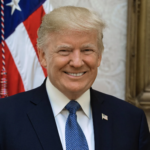
Introduction
Donald John Trump has led a life marked by ambition, controversy, and significant public attention. From businessman, television star, and then politician, Trump’s journey to the White House has been a twisted but interesting story. There are lesser-known facts about the returning president-elect but they all contribute to the understanding of his character and career.
Early Life and Education
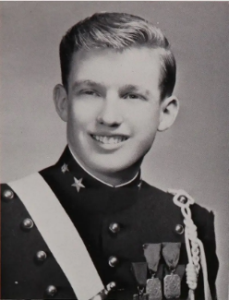
 Born on June 14,1946, in Queens, New York, Trump was born into a wealthy family. His father, Fred Trump, was already a successful real estate developer. He grew up in the Jamaica Estates in Queens and he was the fourth child of five children. His early life can be characterized by privilege but also strict discipline. He was attending the Kew-Forest School until his father decided that he needed to be more disciplined before it was too late, so he was sent to New York Militar
Born on June 14,1946, in Queens, New York, Trump was born into a wealthy family. His father, Fred Trump, was already a successful real estate developer. He grew up in the Jamaica Estates in Queens and he was the fourth child of five children. His early life can be characterized by privilege but also strict discipline. He was attending the Kew-Forest School until his father decided that he needed to be more disciplined before it was too late, so he was sent to New York Militar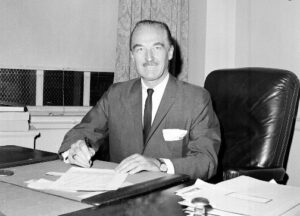 y Academy. From 1959 until 1964, Trump studied at the NYMA, where he flourished within the military structure, reached higher ranks of captain, and took an active part in competitive activities. His stay at the Academy is normally said to have been formative, as it developed in him some dose of leadership and competitive spirit. Yet it was a time of building bad habits as well; he proved rather to be a dominator over his classmates. Trump later on bragged that he had undergone more military training during his education at NYMA than he would ever have gotten in real military service, even though he received several deferments for medical problems during the Vietnam War. His fierce personality and attitude of leadership on the front of business and politics are mostly attributable to his experiences at this academy. A little lesser-known fact about Trump is that he stopped drinking alcohol after he saw the struggles of his older brother that had alcoholism, this can also be attributed to his discipline that he gained in military school.
y Academy. From 1959 until 1964, Trump studied at the NYMA, where he flourished within the military structure, reached higher ranks of captain, and took an active part in competitive activities. His stay at the Academy is normally said to have been formative, as it developed in him some dose of leadership and competitive spirit. Yet it was a time of building bad habits as well; he proved rather to be a dominator over his classmates. Trump later on bragged that he had undergone more military training during his education at NYMA than he would ever have gotten in real military service, even though he received several deferments for medical problems during the Vietnam War. His fierce personality and attitude of leadership on the front of business and politics are mostly attributable to his experiences at this academy. A little lesser-known fact about Trump is that he stopped drinking alcohol after he saw the struggles of his older brother that had alcoholism, this can also be attributed to his discipline that he gained in military school.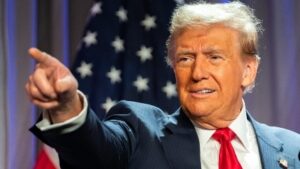
He attended the Fordham University in 1964 but transferred to the Wharton School of Finance at the University of Pennsylvania two years later. He graduated in 1968 with a Bachelor of Science in economics. After college, Trump decided to join his father’s business and began investing in real estate. The first significant project that he was involved was the renovation of the Commodore Hotel in Manhattan into the Grand Hyatt New York. This propelled Trump into the real estate world and by the 1980s, he had established himself as a prominent figure in New York City real estate, especially with projects like the Trump Tower. However, this rise to power did not come without controversies such as several bankruptcies. Some of his wins and losses have been summarized below:
Successes | ||
Business/Political Ventures | Description | Outcomes |
Grand Hyatt Hotel | Transformed the deteriorating Commodore Hotel into a successful luxury hotel in NYC. | Still in operation, profitable. |
Wollman Rink | Renovated the ice-skating rink in Central Park for $350k under budget. | Successful renovation. |
Trump Tower | Built an iconic skyscraper on Fifth Avenue, a symbol of luxury and success. | Continues to thrive. |
Trump International Tower Chicago | Developed the second tallest hotel in Chicago, acclaimed as the best large city hotel in North America. | Award-winning and operational. |
40 Wall Street | Acquired for $1 million, renovated for $35 million, and now valued at approximately $500 million. | Highly profitable investment. |
Presidency | Trump won the presidential election both in 2016 and in 2025 | Ongoing |
Failures | ||
Trump Airlines | Purchased Eastern Air Shuttle and attempted to create a luxury airline; failed to turn a profit. | Ceased operations in 1992. |
Trump Taj Mahal | Opened as a lavish casino resort but faced financial difficulties, ultimately closing in 2016 after years of losses. | Closed after multiple bankruptcies. |
Truth social media | Launched as a social media platform aiming to compete with mainstream networks; faced criticism and challenges regarding user engagement and functionality | Struggled to gain traction post-launch. |
Trump Plaza Hotel and Casino | Another Atlantic City casino that struggled financially, leading to bankruptcy and closure in 2014. | Ceased operations amid financial struggles. |
Trump Vodka | Launched vodka brand with high expectations; production stopped due to lack of interest. | Discontinued in 2011. |
Trump University | Non-accredited institution faced lawsuits for fraud and misleading practices; ceased operations in 2010. | Shut down amid legal issues. |
Trump Mortgage | Launched mortgage company that failed within a year due to poor management choices. | Closed in 2007. |
GoTrump.com | A luxury travel search engine that operated for only one year before shutting down. | Discontinued in 2007. |
Trump Entertainment Resorts | Casino entity that filed for bankruptcy multiple times (four times) over two decades. | Ultimately dissolved operations. |
Some brands he also lent his name to were: Trump Menswear, Trump Golf Shirts, “Make America Great Again” Caps, Trump Steaks, Trump Ice Bottled Water, Trump Home Products, Trump Furniture, Trump Perfumes & Colognes, Trump Deodorant, Trump Digital Trading Cards, Never Surrender Sneakers.
Reality Television Fame
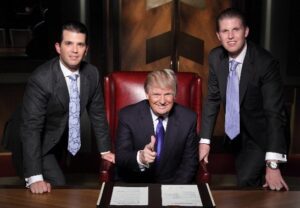 The Apprentice became a reality TV show back in 2004 competing on business tasks, and the winner would take the job of Donald Trump. The show did pretty well, and certainly turned Trump from a New York businessman into a full-blown celebrity. Over its 14 seasons, Trump was portrayed as a savvy entrepreneur, despite facing significant financial challenges in his actual business ventures. The fame and fortune of the company were equally intertwined with a bunch of tasks about popular brands under the owner’s name because it had increased the interest it received, thus enhancing Trump’s position as an accomplished leader. The Apprentice made well for Trump, with enormous revenue estimates close to $214 million; it paved the way for his political career to cognition him as a public figure with some perceived business scattered over the landscape.
The Apprentice became a reality TV show back in 2004 competing on business tasks, and the winner would take the job of Donald Trump. The show did pretty well, and certainly turned Trump from a New York businessman into a full-blown celebrity. Over its 14 seasons, Trump was portrayed as a savvy entrepreneur, despite facing significant financial challenges in his actual business ventures. The fame and fortune of the company were equally intertwined with a bunch of tasks about popular brands under the owner’s name because it had increased the interest it received, thus enhancing Trump’s position as an accomplished leader. The Apprentice made well for Trump, with enormous revenue estimates close to $214 million; it paved the way for his political career to cognition him as a public figure with some perceived business scattered over the landscape.
Trump has had many cameos in movies and series as well. The movies include: Ghosts Can’t Do It, Home Alone 2: Lost in New York, The Little Rascals, Across the Sea of Time, The Associate, 54, Celebrity, Zoolander, Two Weeks Notice, and Wall Street: Money Never Sleeps. The series include: The Fresh Prince of Bel-Air, Saturday Night Live, and WWE. In addition to all these cameos, he has had documentaries and films made about him as well such as, Trump: An American Dream and The Apprentice (2024). Recently, Donald Trump appointed Sylvester Stallone, Mel Gibson, and Jon Voight as “Special Ambassadors” for Hollywood, expressing his intention to revitalize the industry.
Trump – Lawyers Influences and Controversies
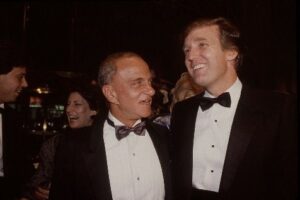 Donald Trump had a lawyer, in the 1970s, by the name of Roy Cohn, who had influenced him greatly when it came to how he approaches business, media, and politics. Their partnership began when Trump was seeking advice from Cohn on a federal lawsuit alleging racial discrimination against his family’s real estate company. The US Justice Department was suing Trump and his family for marking black tenants with a “C” for “colored.” This caused ripples in Trump’s reputation and business operations, which made him turn to a very aggressive lawyer which was Roy Cohn. Cohn’s advice was to sue the Justice Department for defamation and he famously told Trump, “Tell them to go to hell and fight the thing in court and let them prove you discriminated.” Cohn was a lawyer who had specialized in a mentality that was aggressive and had a win-at-all-costs strategy. He taught Trump to deny any wrongdoing and attack his opponents relentlessly, we can see the influence of this later when Trump was running for office. The advice that Cohn gave Trump during his trial against the Justice Department taught him that he should have a confrontational stance against critics and adversaries throughout his career. Their relationship deepened as they communicated frequently—sometimes up to 20 times a day—discussing not only legal matters but also personal issues, including Trump’s marriage and business strategies. Cohn introduced Trump to influential figures like media mogul Rupert Murdoch, further embedding him into New York’s elite circles. Cohn had instilled a mindset in Trump that he was invincible and a belief that public perception mattered more than factual evidence. Cohn’s ability to manipulate media narratives helped shape Trump’s understanding of public relations as a tool for maintaining power and influence. The relationship between Donald Trump and Roy Cohn was foundational in shaping Trump’s approach to both business and politics. Cohn’s mentorship provided Trump with strategies that emphasized aggression, denial, and media manipulation—elements that would define Trump’s career as a businessman and politician. Their bond illustrates how personal relationships can profoundly influence public figures, leaving lasting impacts on their careers and legacies.
Donald Trump had a lawyer, in the 1970s, by the name of Roy Cohn, who had influenced him greatly when it came to how he approaches business, media, and politics. Their partnership began when Trump was seeking advice from Cohn on a federal lawsuit alleging racial discrimination against his family’s real estate company. The US Justice Department was suing Trump and his family for marking black tenants with a “C” for “colored.” This caused ripples in Trump’s reputation and business operations, which made him turn to a very aggressive lawyer which was Roy Cohn. Cohn’s advice was to sue the Justice Department for defamation and he famously told Trump, “Tell them to go to hell and fight the thing in court and let them prove you discriminated.” Cohn was a lawyer who had specialized in a mentality that was aggressive and had a win-at-all-costs strategy. He taught Trump to deny any wrongdoing and attack his opponents relentlessly, we can see the influence of this later when Trump was running for office. The advice that Cohn gave Trump during his trial against the Justice Department taught him that he should have a confrontational stance against critics and adversaries throughout his career. Their relationship deepened as they communicated frequently—sometimes up to 20 times a day—discussing not only legal matters but also personal issues, including Trump’s marriage and business strategies. Cohn introduced Trump to influential figures like media mogul Rupert Murdoch, further embedding him into New York’s elite circles. Cohn had instilled a mindset in Trump that he was invincible and a belief that public perception mattered more than factual evidence. Cohn’s ability to manipulate media narratives helped shape Trump’s understanding of public relations as a tool for maintaining power and influence. The relationship between Donald Trump and Roy Cohn was foundational in shaping Trump’s approach to both business and politics. Cohn’s mentorship provided Trump with strategies that emphasized aggression, denial, and media manipulation—elements that would define Trump’s career as a businessman and politician. Their bond illustrates how personal relationships can profoundly influence public figures, leaving lasting impacts on their careers and legacies.
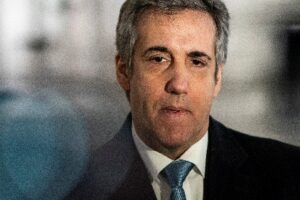 Trump was introduced to another lawyer, Michael Cohen, near the same time as his show “The Apprentice” had started. Donald Trump’s relationship with Michael Cohen is a compelling narrative of loyalty, betrayal, and legal entanglement that has unfolded over more than a decade. Once considered Trump’s most trusted confidant and “fixer,” Cohen’s journey with Trump has shifted dramatically from unwavering loyalty to public testimony against him, reflecting the tumultuous nature of their association. Michael started working for Trump in 2006 and quickly made his way up to become the vice president. Cohen was more than just a lawyer for Trump, he was also deeply involved with business dealings. They were not just boss and employee but good friends as Trump and Cohen would regularly communicate daily, whether in person or over the phone. It all came crashing down when Trump was running for the 2016 presidential campaign. Cohen had facilitated hush-money payments to an adult film star Stormy Daniels, which was made before Trump ran for office. When federal agents raided Cohen’s house and office in 2018, Cohen pleaded guilty to multiple charges, including campaign finance violations, tax fraud, and lying to Congress. His admissions implicated Trump directly in orchestrating the hush-money scheme, marking a significant shift from his previous role as an unwavering supporter to that of a key witness against his former boss. After his guilty plea and subsequent prison sentence, Cohen distanced himself from Trump calling him a “con man.” Trump only responded with denial and dismissal while also suing him for half a billion dollars for breaking attorney-client privilege.
Trump was introduced to another lawyer, Michael Cohen, near the same time as his show “The Apprentice” had started. Donald Trump’s relationship with Michael Cohen is a compelling narrative of loyalty, betrayal, and legal entanglement that has unfolded over more than a decade. Once considered Trump’s most trusted confidant and “fixer,” Cohen’s journey with Trump has shifted dramatically from unwavering loyalty to public testimony against him, reflecting the tumultuous nature of their association. Michael started working for Trump in 2006 and quickly made his way up to become the vice president. Cohen was more than just a lawyer for Trump, he was also deeply involved with business dealings. They were not just boss and employee but good friends as Trump and Cohen would regularly communicate daily, whether in person or over the phone. It all came crashing down when Trump was running for the 2016 presidential campaign. Cohen had facilitated hush-money payments to an adult film star Stormy Daniels, which was made before Trump ran for office. When federal agents raided Cohen’s house and office in 2018, Cohen pleaded guilty to multiple charges, including campaign finance violations, tax fraud, and lying to Congress. His admissions implicated Trump directly in orchestrating the hush-money scheme, marking a significant shift from his previous role as an unwavering supporter to that of a key witness against his former boss. After his guilty plea and subsequent prison sentence, Cohen distanced himself from Trump calling him a “con man.” Trump only responded with denial and dismissal while also suing him for half a billion dollars for breaking attorney-client privilege.
Political Career
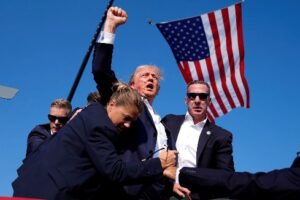 Trump announced his candidacy for president on June 16, 2015. Heavily criticized in the beginning, he quickly gained the favor of Republican voters with his unconventional style and populist messaging. By focusing on issues such as immigration reform and economic nationalism while often employing controversial rhetoric, Trump beat Hillary Clinton in the 2016 elections and marked the first time a person has been president without holding any prior elected office or military rank. Trump’s candidacy generated unprecedented media coverage; at one point during the primaries, Google reported that over 62% of searches related to GOP candidates were about him alone. During his presidency, he implemented significant shifts in policy that had polarized public opinion. The Trump administration focused on tax cuts through the Tax Cuts and Jobs Act of 2017 and deregulation efforts aimed at boosting economic growth. He also faced controversy over policies such as family separation at the US – Mexico border and handling of racial tensions. He was also faced with two impeachments, firstly in December 2019 for abuse of power related to Ukraine and secondly in January 2021 for inciting a riot at Capitol Hill. Despite losing in the 2020 election, Trump still maintained a strong influence over the Republican Party.
Trump announced his candidacy for president on June 16, 2015. Heavily criticized in the beginning, he quickly gained the favor of Republican voters with his unconventional style and populist messaging. By focusing on issues such as immigration reform and economic nationalism while often employing controversial rhetoric, Trump beat Hillary Clinton in the 2016 elections and marked the first time a person has been president without holding any prior elected office or military rank. Trump’s candidacy generated unprecedented media coverage; at one point during the primaries, Google reported that over 62% of searches related to GOP candidates were about him alone. During his presidency, he implemented significant shifts in policy that had polarized public opinion. The Trump administration focused on tax cuts through the Tax Cuts and Jobs Act of 2017 and deregulation efforts aimed at boosting economic growth. He also faced controversy over policies such as family separation at the US – Mexico border and handling of racial tensions. He was also faced with two impeachments, firstly in December 2019 for abuse of power related to Ukraine and secondly in January 2021 for inciting a riot at Capitol Hill. Despite losing in the 2020 election, Trump still maintained a strong influence over the Republican Party.
On July 13, 2024, President-elect Donald Trump was the target of an assassination attempt during a campaign rally in Butler, Pennsylvania. A 20-year-old man named Thomas Matthew Crooks opened fire from a nearby rooftop, hitting Trump in the upper part of his right ear while also killing one audience member and injuring two others. The Secret Service quickly responded, fatally shooting Crooks seconds after the attack began. Trump later recounted the moment he was struck, describing the sensation of the bullet and the immediate chaos that ensued as agents shielded him and rushed him to safety. He credited a nearby chart he was pointing to at the time for potentially saving his life by altering his head’s position just before the shot was fired
Overall, Trump has had positive and negative impact on the world. Some of the positives are:
- Job Growth: Unemployment rates reached record lows, particularly among historically marginalized groups. For example, the unemployment rate for African Americans fell to its lowest level since records began.
- Manufacturing Resurgence: Manufacturing jobs grew at their fastest rate in over two decades, benefiting regions that had been economically depressed.
- Energy Independence: Trump’s policies promoted domestic energy production, allowing the U.S. to surpass both Saudi Arabia and Russia as the world’s top oil producer.
- Abraham Accords: These agreements normalized relations between Israel and several Arab nations, including the UAE, Bahrain, Sudan, and Morocco. This diplomatic breakthrough was hailed as a significant step towards peace in the Middle East.
- Hostage Releases: Trump secured the release of numerous Americans held captive abroad, including high-profile cases involving hostages in North Korea and Turkey.
- Tough Stance on China: His administration took a hardline approach against China, emphasizing trade tariffs that aimed to protect American industries.
On the other hand, some of the negative impacts he has had is:
- Election Integrity Concerns: Following the 2020 election, Trump’s unfounded claims of widespread voter fraud culminated in attempts to overturn legitimate election results. This effort culminated in the January 6 Capitol riot, which many view as an assault on democratic institutions.
- Withdrawal from International Agreements: He withdrew the U.S. from several key international agreements, including the Paris Climate Accord and the Iran Nuclear Deal. These moves were seen as detrimental to global cooperation on critical issues like climate change and nuclear proliferation.
- Trade Wars: The imposition of tariffs sparked trade wars that had ripple effects on global markets. Critics argue that these tariffs led to increased costs for consumers and retaliatory measures from other countries.
- Impeachment Trials: Trump was impeached twice during his term—first for abuse of power related to Ukraine and later for incitement of insurrection following the Capitol riot. These events underscored concerns about his adherence to constitutional norms.
- Ongoing Investigations: Post-presidency, Trump has faced multiple legal challenges related to his business practices and actions while in office. These investigations continue to raise questions about ethics and accountability in leadership.
Trump’s Notable Friendships
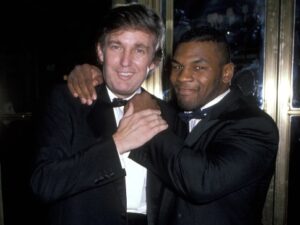 Donald Trump has made a lot of enemies throughout his life but he has made some notable friends as well. Trump used to host Mike Tyson’s fight in his Atlantic City casinos and he even defended Tyson against his 1992 rape convictions, suggesting he pay a fine rather than get prison time. Tyson always talks highly of Trump, recalling the times that he would provide free tickets and hotel rooms. Tyson has publicly supported Trump, specifically in his 2015 presidential campaigns. Kanye West had endorsed Trump in a meeting in 2016 in Trump Tower, and the two have maintained a friendship characterized by discussions on life and politics. Longtime broadcaster Larry King was a close friend of Trump, reminiscing about their shared experiences at events like the Super Bowl. Similarly, TV personality Regis Philbin maintained a friendship with Trump since the early 1980s, often describing him positively. New England Patriots quarterback Tom Brady is another notable friend. Brady has publicly supported Trump amidst scrutiny during the 2016 election, highlighting their long-standing camaraderie. The most powerful and recent person he has grown closer to is Elon Musk, who seems to be somewhat very close to Trump and a good friend.
Donald Trump has made a lot of enemies throughout his life but he has made some notable friends as well. Trump used to host Mike Tyson’s fight in his Atlantic City casinos and he even defended Tyson against his 1992 rape convictions, suggesting he pay a fine rather than get prison time. Tyson always talks highly of Trump, recalling the times that he would provide free tickets and hotel rooms. Tyson has publicly supported Trump, specifically in his 2015 presidential campaigns. Kanye West had endorsed Trump in a meeting in 2016 in Trump Tower, and the two have maintained a friendship characterized by discussions on life and politics. Longtime broadcaster Larry King was a close friend of Trump, reminiscing about their shared experiences at events like the Super Bowl. Similarly, TV personality Regis Philbin maintained a friendship with Trump since the early 1980s, often describing him positively. New England Patriots quarterback Tom Brady is another notable friend. Brady has publicly supported Trump amidst scrutiny during the 2016 election, highlighting their long-standing camaraderie. The most powerful and recent person he has grown closer to is Elon Musk, who seems to be somewhat very close to Trump and a good friend.
Conclusion
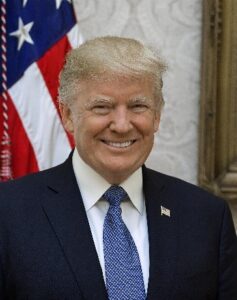
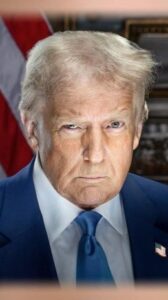 Donald Trump’s potential return to office is expected to bring significant changes across various sectors, with implications for both the U.S. and global economies. He became the second president, after Grover Cleveland, to be re-elected after losing once. His administration may pursue expansionary fiscal policies, including substantial tax cuts and increased tariffs, particularly targeting China and Mexico, which could severely impact global trade and GDP growth. The anticipated 60% tariffs on China could echo the historical Smoot-Hawley Tariff, potentially leading to a collapse in world trade and a retaliatory response from affected countries, particularly in Asia and Europe. Additionally, Trump’s immigration policies may intensify, with plans for increased deportations and stricter border control, which could create labor shortages and upward pressure on wages in the U.S. A stronger dollar is likely to emerge alongside these changes, complicating monetary policy for the Federal Reserve and impacting other economies’ monetary strategies. Trump is going have a significant influence regarding Iran and Israel as well. The new administration is aiming to strengthen alliances with Israel and Saudi Arabia while simultaneously exerting more pressure on Iran to stop its nuclear ambitions. The next steps Trump takes in the Middle East may cause a lot of
Donald Trump’s potential return to office is expected to bring significant changes across various sectors, with implications for both the U.S. and global economies. He became the second president, after Grover Cleveland, to be re-elected after losing once. His administration may pursue expansionary fiscal policies, including substantial tax cuts and increased tariffs, particularly targeting China and Mexico, which could severely impact global trade and GDP growth. The anticipated 60% tariffs on China could echo the historical Smoot-Hawley Tariff, potentially leading to a collapse in world trade and a retaliatory response from affected countries, particularly in Asia and Europe. Additionally, Trump’s immigration policies may intensify, with plans for increased deportations and stricter border control, which could create labor shortages and upward pressure on wages in the U.S. A stronger dollar is likely to emerge alongside these changes, complicating monetary policy for the Federal Reserve and impacting other economies’ monetary strategies. Trump is going have a significant influence regarding Iran and Israel as well. The new administration is aiming to strengthen alliances with Israel and Saudi Arabia while simultaneously exerting more pressure on Iran to stop its nuclear ambitions. The next steps Trump takes in the Middle East may cause a lot of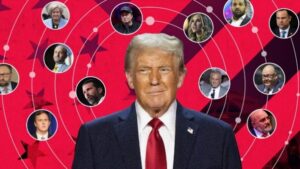 conflict but there is high potential that it would have rippling positive effects as well. Trump has also made it apparent that he has an interest in Greenland and has resurfaced discussions about territorial claims and international relations. He made a suggestion to purchase Greenland from Denmark which was met with criticism, which in return made the tensions between US and Canada even more. Trump has made it clear that he wants Canada to join the US which rubbed Canadians the wrong way. Overall, while Trump’s policy intentions suggest a robust economic agenda, the actual implementation may face hurdles due to intra-party opposition and the need for legislative consensus amidst a slim majority in Congress.
conflict but there is high potential that it would have rippling positive effects as well. Trump has also made it apparent that he has an interest in Greenland and has resurfaced discussions about territorial claims and international relations. He made a suggestion to purchase Greenland from Denmark which was met with criticism, which in return made the tensions between US and Canada even more. Trump has made it clear that he wants Canada to join the US which rubbed Canadians the wrong way. Overall, while Trump’s policy intentions suggest a robust economic agenda, the actual implementation may face hurdles due to intra-party opposition and the need for legislative consensus amidst a slim majority in Congress.
Since taking office in January 2025, President Trump has pursued two notable policy initiatives: renaming the Gulf of Mexico and overhauling U.S. tax policies. On his first day, he signed an executive order directing the Gulf of Mexico’s official U.S. designation be changed to the “Gulf of America,” citing national pride and economic significance. While Google has agreed to implement the name change on its maps, Mexico contests the move, arguing it violates United Nations conventions governing territorial waters.
Regarding tax policy, Trump issued the America First Trade Policy Executive Order, empowering the Treasury Department to investigate foreign tax practices under Section 891 of the U.S. tax code—a 90-year-old provision allowing retaliatory doubling of taxes on countries deemed to impose “discriminatory or extraterritorial taxes” on U.S. entities. This aligns with his broader agenda to withdraw from international agreements like the OECD Global Tax Deal and transition toward a territorial tax system for U.S. expatriates. Domestically, he aims to extend 2017 Tax Cuts and Jobs Act provisions, reduce corporate tax rates to 15–20%, and impose universal tariffs on imports. These actions reflect a dual focus on symbolic nationalism and aggressive economic protectionism.
To learn about Trump’s first 100 days click here:
Tariffs, Talks, and Turmoil: Trump’s Second-Term Sprint




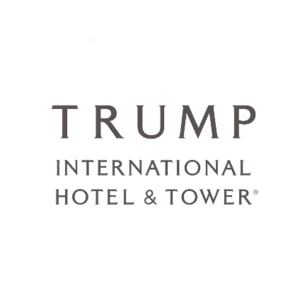
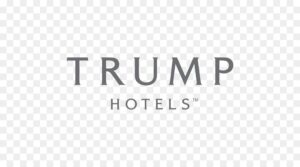
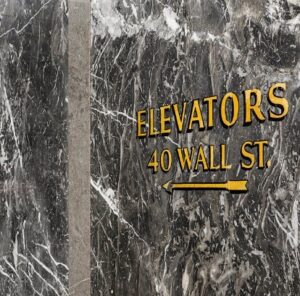
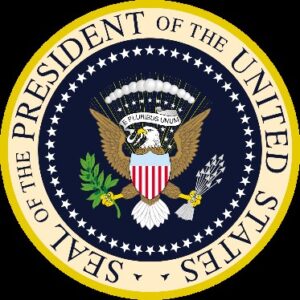
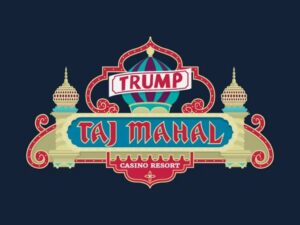

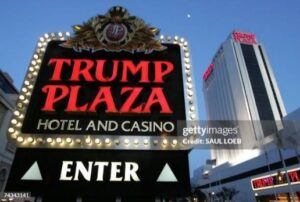
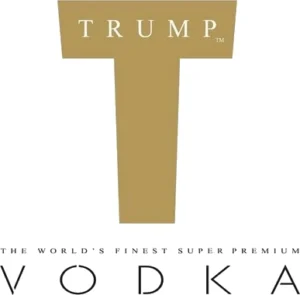
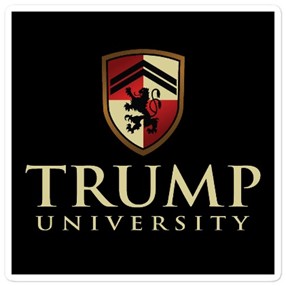
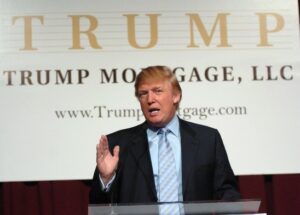
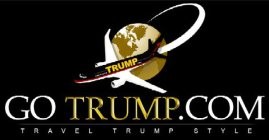

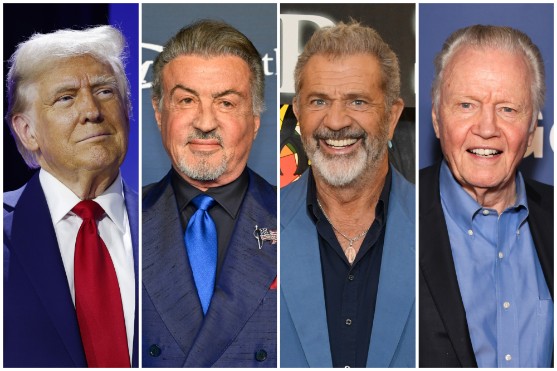


A fascinating look at Trump’s resilience in both business and politics. His ability to stage comebacks is truly remarkable!
Looks like Trump’s got big plans for his return.
This is such a great biography of Trump. I learned so many facts about him that I did not know about!